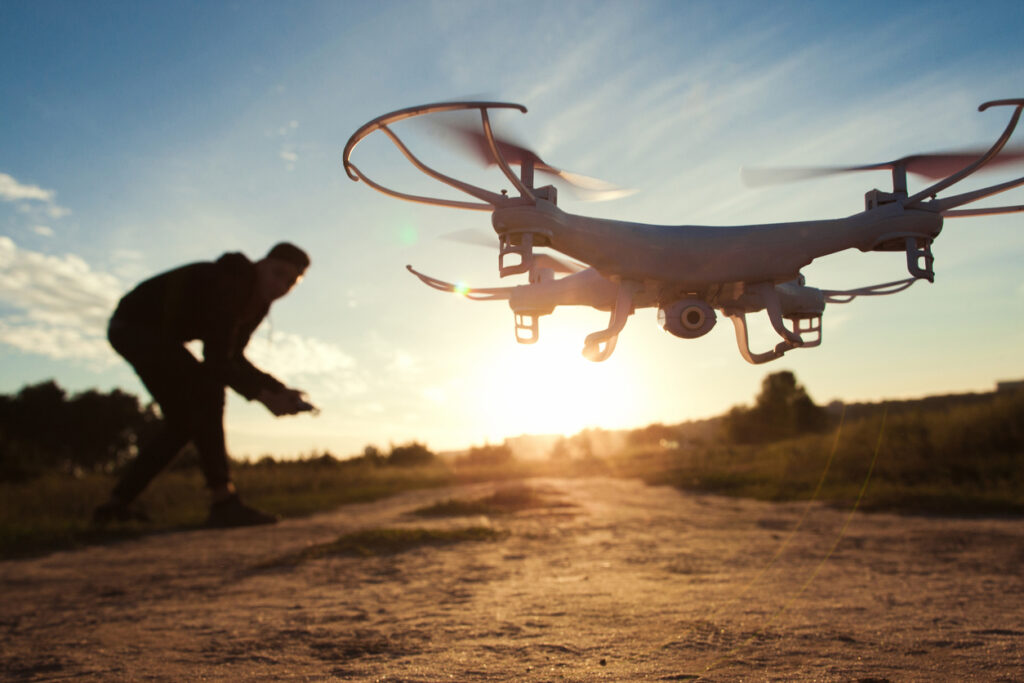ADF STAFF
The spread of unmanned aerial vehicles (UAVs) across Africa has many security experts concerned that it is only a matter of time before terrorists begin using armed drones to attack military and civilian targets.
“The massive use of remotely controlled vehicles made possible by the accessibility of the technology and the ridiculous costs of its implementation is becoming a real threat for any air force, however modern it may be,” Brig. Gen. Papa Souleymane Sarr, chief of staff of the Senegalese Air Force, told Agence de Presse Senegalese during a gathering of African Air Force chiefs last October in Senegal.
Drones have become a must-have for security forces and terror groups across the continent, driving a UAV arms race. On one side are governments with big-ticket technology; on the other side are extremist groups turning inexpensive hobby aircraft into flying improvised explosive devices (IEDs.)
“The possession, use and sophistication of drones by insurgents increasingly forms a security threat for African governments,” the nongovernmental organization PAX wrote in an analysis of drones in Africa.
Both sides have used UAVs for intelligence gathering. However, governments so far appear to have the upper hand when it comes to weaponized drones. Ethiopia used drones to bolster its fight against rebel forces in Tigray and Oromia. Nigeria uses tethered drones to monitor its northern border and has used free-flying drones to attack extremist camps in the northeast. Nigeria also is developing its own drones with help from Pakistan.
The question remains: How much longer will governments have the upper hand?
“Recent reportage from Ukraine shows how hobbyist drones have been fitted with mechanisms allowing grenades to be dropped from the air,” researcher Karen Allen with the Pretoria-based Institute for Security Studies, wrote in a recent analysis. “Militant groups in Africa, including Boko Haram, Islamic State West Africa Province (ISWAP) and al-Shabaab, appear to be watching and learning.”
Unlike their large military counterparts, terrorists’ repurposed hobby drones can be hard to detect and harder to shoot down, amplifying the threat they pose to Soldiers and civilians alike.
In essence, commercial drone advancements have given terrorists a form of crude airpower, challenging militaries’ air dominance, according to researchers Kerry Chávez and Ori Swed writing in the journal Armed Forces & Society.
The psychological threat from terrorists launching airborne IEDs is equally as important as any potential physical threat. In that respect, the terrorists possess a tactical advantage, according to Nigerian security expert Kabiru Adamu.
“It will shock you that we do not have any sanctioned or certified methods for mitigating aerial attacks in the country using unmanned aerial vehicles at the moment,” Adamu told Voice of America (VOA). “I think we’re currently trying to develop our capacity for that. It appears to me that the Nigerian military in particular is playing catch-up in this area.”
For now, terrorists appear to be limited to using their drones for observation and intelligence. In 2022, ISWAP launched its own drone to film a bird’s-eye view of a battle with Nigeria’s Civilian Joint Task Force, a government-backed militia in the northeast. The video from that battle was used as ISWAP propaganda. ISWAP has showcased its training camps in a similar fashion.
As the Islamic State group and al-Qaida shift their focus from the Middle East to the Sahel, they are bringing the lessons learned in Iraq and Syria to Burkina Faso, Niger and Somalia — lessons that include weaponizing drones.
“You know how callous those guys are,” Nigerian security expert Chidi Omeje told VOA. “The moment they have such window of opportunity to do more harm, they’ll definitely employ that tactic. It’s quite concerning.”

